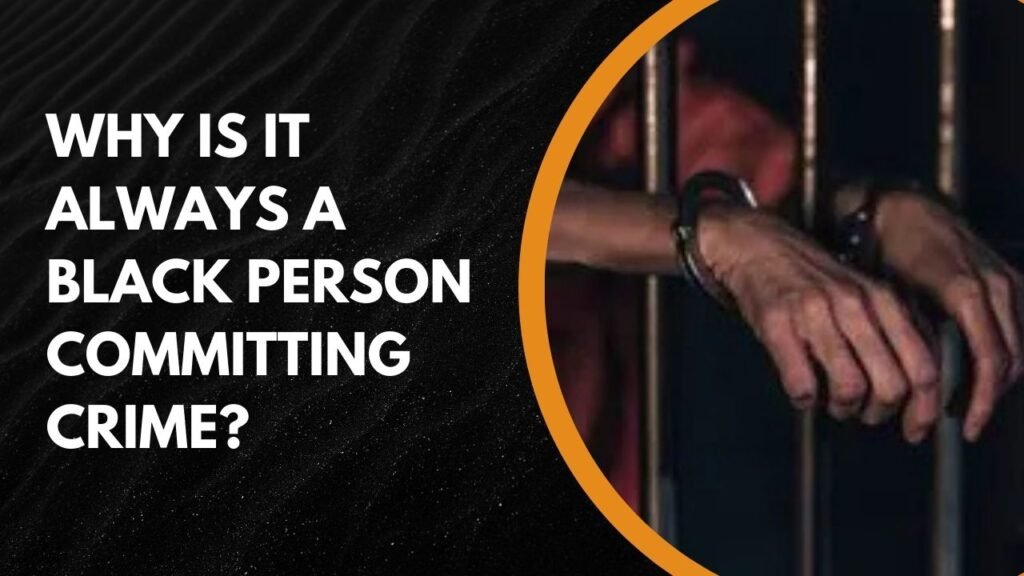Is It a Crime to Hire Undocumented Workers? If you own or manage a business in the United States, you know hiring can be tricky. One big issue is hiring undocumented workers. This can lead to serious legal trouble.
It’s key to know the undocumented worker laws to stay out of trouble. If you’re thinking about hiring, you must understand the rules. Hiring undocumented workers can cause big fines and harm your business’s image and profits.
This article will explain the legal risks of hiring undocumented workers. It will also cover the laws that control their employment. This will help you make smart choices about your team.
Contents
- 1 The Legal Status of Hiring Undocumented Workers
- 2 Is It a Crime to Hire Undocumented Workers? Understanding the Legal Framework
- 3 Penalties for Employing Undocumented Workers
- 4 Employer Verification Requirements
- 5 Enforcement of Immigration Employment Laws
- 6 Potential Defenses for Employers
- 7 State and Local Laws on Undocumented Workers
- 8 Local Ordinances
- 9 Conclusion
- 10 FAQ
- 10.1 What are the penalties for hiring undocumented workers?
- 10.2 How can employers verify the status of their workers?
- 10.3 What are the employer verification requirements?
- 10.4 Can employers be held liable for hiring undocumented workers if they were unaware of the workers’ status?
- 10.5 How do state and local laws impact the employment of undocumented workers?
- 10.6 What are the potential defenses for employers who face penalties for hiring undocumented workers?
The Legal Status of Hiring Undocumented Workers
Employers need to know the legal rules about hiring undocumented workers. The laws are complex, mixing federal and state rules.
It’s key for employers to understand their duties. They must check their workers’ immigration status to avoid fines.
Employer Responsibilities
Employers must make sure their workers are allowed to work in the U.S. They need to fill out Form I-9 for each worker and keep records right.
- Verify the identity and employment authorization of each employee.
- Complete and maintain Form I-9 for each employee.
- Understand the legal implications of hiring undocumented immigrants.
Following these steps helps employers avoid legal trouble. It’s important to keep up with immigration law changes to stay compliant.
Is It a Crime to Hire Undocumented Workers? Understanding the Legal Framework
Employers face a complex set of laws when hiring undocumented workers. The main law is the Immigration Reform and Control Act (IRCA) of 1986. It sets the rules for hiring these workers.
The IRCA makes it illegal to knowingly hire undocumented workers. Employers must check if workers are eligible to work in the U.S. They do this by using the Form I-9. This form asks for proof of identity and work eligibility.
Breaking these laws can lead to big fines and even jail time. Employers must follow the rules closely to avoid these penalties.
Key Components of the Legal Framework
| Law/Regulation | Description | Impact on Employers |
|---|---|---|
| IRCA (1986) | Prohibits hiring or employing undocumented workers | Requires verification of employee eligibility through Form I-9 |
| Form I-9 | Verifies identity and employment eligibility | Must be completed for all employees, with documentation recorded |
| Penalties for Non-Compliance | Financial penalties and potential criminal prosecution | Significant fines for violating IRCA, potentially leading to financial strain |
It’s key for employers to know the laws to avoid trouble. By understanding these rules, employers can stay safe from legal issues.
Employers should regularly review and update their compliance procedures to ensure they are meeting the necessary legal standards.
Penalties for Employing Undocumented Workers
Employers need to know that hiring undocumented workers can lead to big fines and other serious issues. The rules about hiring undocumented workers are complex. Breaking these rules can cause severe penalties.
Fines for hiring undocumented workers can be very high. Employers might face penalties for each undocumented worker they hire. The amount for each violation can be quite steep. Besides fines, other consequences include:
- Debarment from government contracts
- Loss of business licenses
- Potential criminal liability in severe cases
It’s very important for employers to understand these risks. They should take steps to check if their employees are legally allowed to work. This way, they can avoid the serious consequences of hiring undocumented workers.
Employers should also know that immigration laws are getting stricter. This means the chance of facing penalties for not following the rules is higher than before. So, it’s best for employers to make sure they follow all laws and regulations.
Employer Verification Requirements
Verifying if workers are allowed to work in the U.S. is key for employers. To follow immigration laws, you must check their work status. This ensures they are legally allowed to work here.
The main way to check this is through the Form I-9, Employment Eligibility Verification. You need to ask your employees for certain documents. These can be a valid passport, driver’s license, or Social Security card.
Documentation Requirements
To fill out the Form I-9, you must look at and record the needed documents within three business days of when they start. You need to check:
- List A: Documents that prove both who they are and that they can work (like a U.S. passport or Permanent Resident Card)
- List B: Documents that show who they are (like a driver’s license or school ID)
- List C: Documents that prove they can work (like a Social Security card or birth certificate)
Keeping accurate records is very important. You must keep the Forms I-9 for either three years after they start or one year after they stop working, whichever is longer. Not following these documentation requirements can lead to big fines.
By knowing and following the verification processes and keeping the right documents, you can avoid big problems. This helps your business run smoothly.
Enforcement of Immigration Employment Laws
Keeping a lawful workforce in the United States is key. As an employer, you play a big role in this. You must follow the rules set by government agencies.
Government agencies like U.S. Immigration and Customs Enforcement (ICE) and the U.S. Citizenship and Immigration Services (USCIS) enforce these laws. They check for compliance through audits and investigations.
Methods of Enforcement
Here are some ways they enforce the laws:
- I-9 audits to check if workers are legally employed
- Investigations into hiring undocumented workers
- Severe penalties for not following the rules
To avoid big fines, your business must follow immigration laws. This means keeping accurate records and using the E-Verify program if needed.
Working with government agencies on immigration laws helps keep your workforce legal. It also prevents legal problems.
See Also: The Legal Consequences of Stealing a Street Sign
Potential Defenses for Employers
Employers facing penalties for hiring undocumented workers have several defenses. Knowing these defenses is key to reducing or avoiding penalties.
Employers can use agood faith defenseif they prove they followed verification rules and kept proper records. This is true if they used E-Verify or other approved methods to check if the employee can work.
Other defenses include:
- Showing the alleged undocumented worker is actually allowed to work in the U.S.
- Proving the employer tried hard to follow immigration laws and rules.
- Arguing the penalties are too harsh or don’t match the alleged violations.

It’s vital for employers to get legal advice from experts. An experienced lawyer can guide them on their rights and the best way to protect their interests.
By using these defenses, employers can defend against penalties and follow immigration laws better.
State and Local Laws on Undocumented Workers
Laws about undocumented workers differ a lot from state to state and even within cities. As an employer, knowing these differences is crucial to follow the law.
Some states have their own rules about hiring undocumented workers. These rules might be stricter or more relaxed than federal laws. For example, some states ask employers to check workers’ immigration status through special databases.
Local Ordinances
Local laws also affect how undocumented workers are treated. Cities or counties might have their own rules for employers. These rules can be stricter than state or federal laws.
For instance, some places have “sanctuary city” policies. These policies limit how much local authorities help federal immigration agencies. On the other hand, some areas require employers to use E-Verify to check workers’ immigration status.
To follow state and local laws, you need to know the specific rules in your area. This includes any local ordinances that affect your business. By keeping up with these laws, you can avoid legal problems related to undocumented workers.
Conclusion
You now understand the complexities of hiring undocumented workers. The legal framework is complex, involving federal and state regulations. Employers must navigate these rules carefully.
Employing undocumented workers can lead to big penalties, like fines and even criminal charges. It’s key to check if your workers are eligible to work. This helps avoid penalties and ensures you follow immigration laws.
As an employer, it’s important to keep up with immigration employment laws. Take steps to verify your employees’ eligibility. This way, you protect your business and help create a fair, lawful work environment.
FAQ
What are the penalties for hiring undocumented workers?
Hiring undocumented workers can lead to fines and penalties. Employers might even face criminal charges. The severity of these penalties depends on how many undocumented workers are hired and the employer’s past actions.
How can employers verify the status of their workers?
Employers can check their workers’ status by filling out Form I-9. They also need to keep accurate records. Using the E-Verify system is another way to verify employment eligibility.
What are the employer verification requirements?
Employers must verify their workers’ identity and eligibility. They need to fill out Form I-9 and keep records up to date. They also have to follow E-Verify rules if needed.
Can employers be held liable for hiring undocumented workers if they were unaware of the workers’ status?
Yes, employers can still be held accountable even if they didn’t know about the workers’ status. It’s their duty to check the status of their workers and keep accurate records.
How do state and local laws impact the employment of undocumented workers?
State and local laws about undocumented workers vary a lot. Employers need to know these differences to follow the rules. Some places have their own laws about hiring undocumented workers.
What are the potential defenses for employers who face penalties for hiring undocumented workers?
Employers might have defenses to reduce or avoid penalties. They can show they tried to follow immigration laws and checked their workers’ status.




